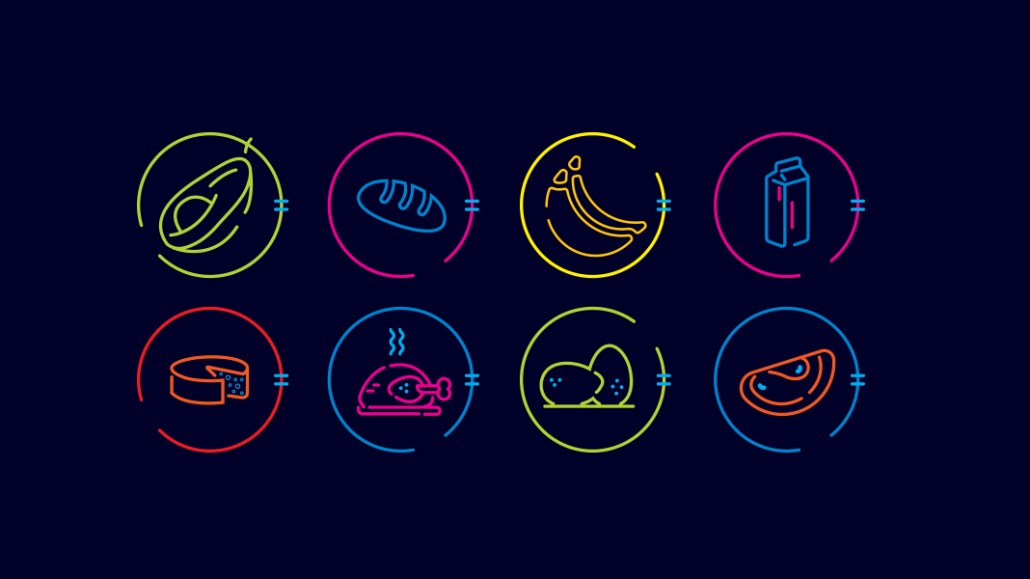Secure your place at the Digiday Media Buying Summit in Nashville, March 2-4

Commerce-focused Food52 saw double its average daily sales of kitchen, cooking and home products after the start of self-isolation actions to mitigate the spread of coronavirus.
On some level the growth came with more traffic. Food52 CEO Amanda Hesser said unique visitors to the site were up 36% during the last two weeks of March versus the first two; the site attracted 7.3 million unique users in March, according to Food52. Food52 has also created promotions for equipment and products needed to cook at home during this pandemic.
This kind of week over week growth is usually only typical around the Thanksgiving holiday, she said, adding that last month email open rates were 20%, the highest they’ve ever been.
Traffic has been higher “largely because our mission is to be a resource for people in their kitchens and homes,” Hesser said. Now that people are spending the vast majority of their time in those locations, Hesser said the site is providing more coverage and products related to how to clean and optimize living spaces and bring entertainment into their homes.
Food52’s average daily sales doubled in the last two weeks of March from the first two weeks of March, as well as the last two weeks of February, according to CEO Amanda Hesser. (She did not disclose hard sale numbers.) This is growth is despite several other publishers claiming that e-commerce revenues are down right now.
Certain categories have experienced a huge spike in the past month. The puzzles and games category was up over 800% from the first two weeks of March compared to the last two weeks of the month. Pantry item sales were also up 50% week over week.
Food52 also worked with one of its retail partners, Steele Canvas, on a “buy one, donate one” coronavirus-related promotion for $22 face masks, which resulted in 10,000 masks being donated to medical facilities in 36 hours.
Hesser said her team is also “focusing a lot of our marketing efforts around supporting these manufacturers.” This includes promoting both products that can be sold currently as well as highlighting the company’s stories, giving the audience a “a direct route to support those businesses.”
One content series that the editorial team created to encourage sales was called “Support a Maker,” which used special promotional emails and social marketing around these manufacturers and their products.
Hesser said that putting those manufacturers in front of the Food52 community and using messaging to encourage people to help struggling brands has led to sales being 10 times higher than what Food52 typically sees on these types of email and social campaigns.
The publisher also has its own product line of about 15 items called Five Two that it has full control over all elements of production and distribution. These products allow the publisher to have a decent amount of pre-produced inventory on hand, which Hesser said is lucky because it enabled the company to continue selling even when certain textile or material producers have had to shut down due to coronavirus.
With affiliate partnerships, you, as the publisher, are not involved in the manufacturing or supply chain, so when a pandemic impacts a retailer’s production and fulfillment, you suddenly don’t have that revenue stream. This is similar to being dependent on third party platforms for driving traffic to your website and then an algorithm change suddenly impacting your advertising revenue, said Chris Erwin, principal and founder of strategy advisory company RockWater.
“The more proximity that you have to your products and audience,” versus relying on merchants or vendors for fulfillment and distribution, “you are in a better boat to weather the storm,” he said.
This story has been updated to include newer sales figures. The story originally published with figures that were available on Monday, April 6.
More in Media

From feeds to streets: How mega influencer Haley Baylee is diversifying beyond platform algorithms
Kalil is partnering with LinkNYC to take her social media content into the real world and the streets of NYC.

‘A brand trip’: How the creator economy showed up at this year’s Super Bowl
Super Bowl 2026 had more on-the-ground brand activations and creator participation than ever, showcasing how it’s become a massive IRL moment for the creator economy.

Media Briefing: Turning scraped content into paid assets — Amazon and Microsoft build AI marketplaces
Amazon plans an AI content marketplace to join Microsoft’s efforts and pay publishers — but it relies on AI com stop scraping for free.





